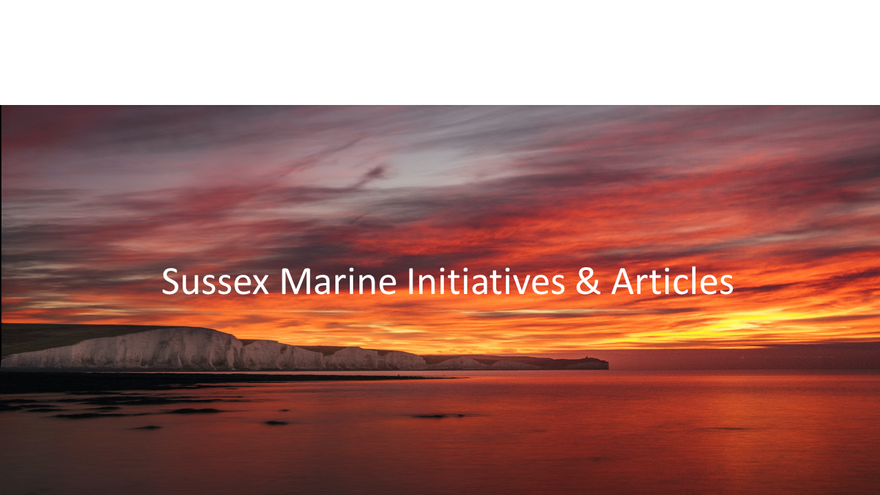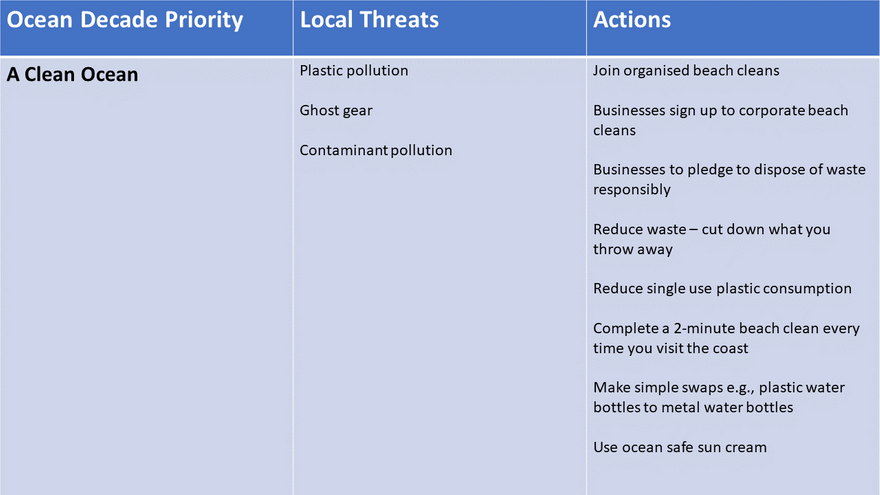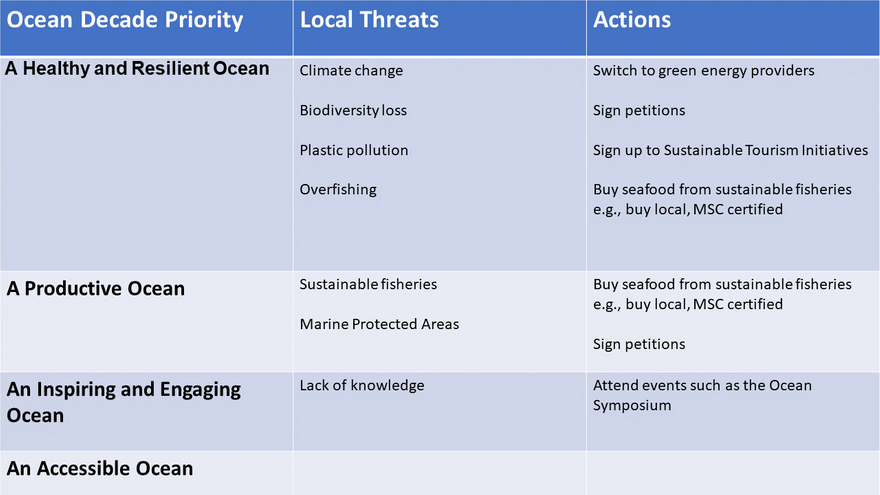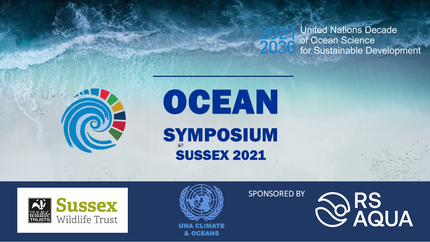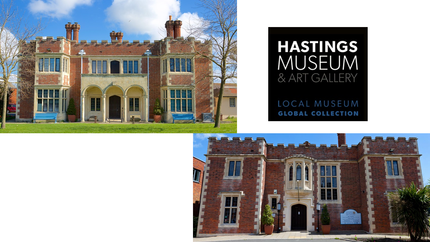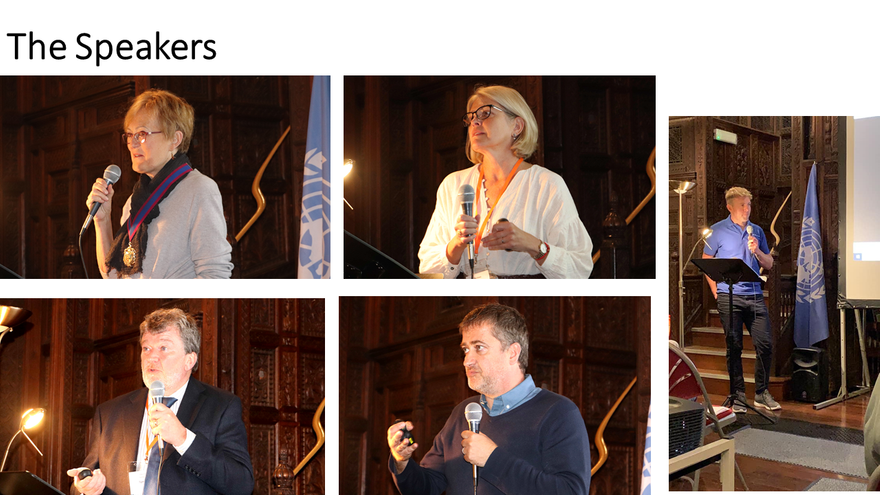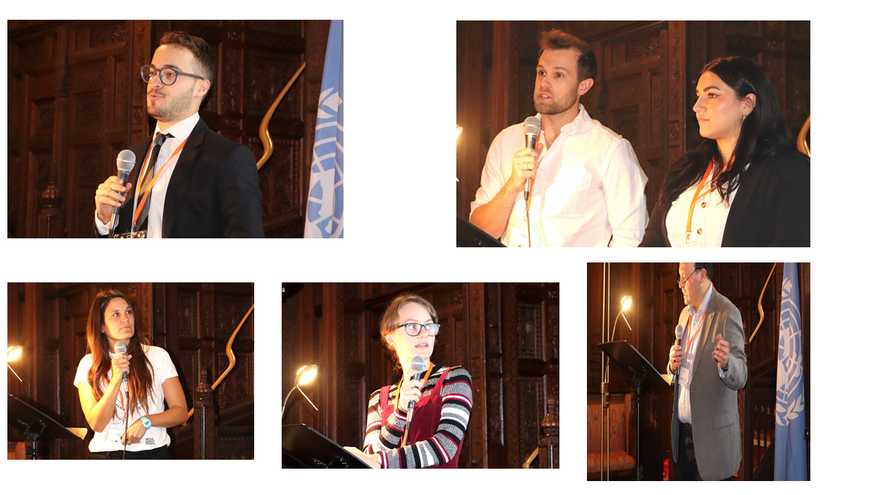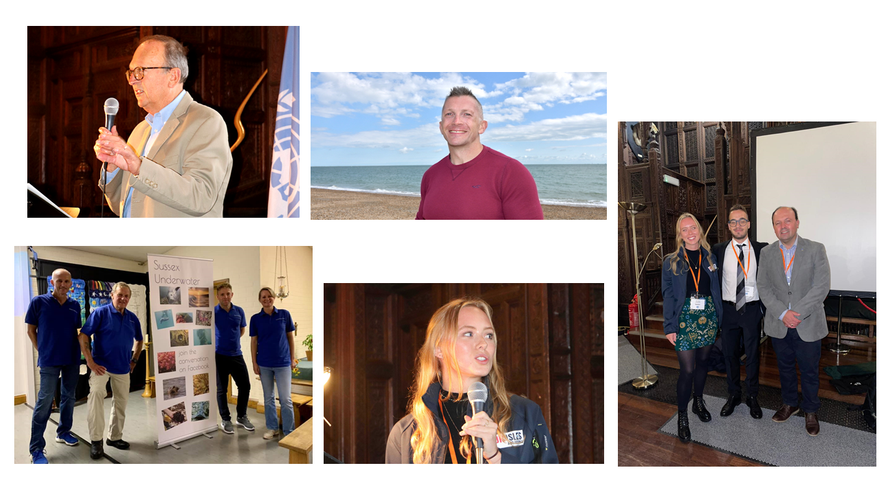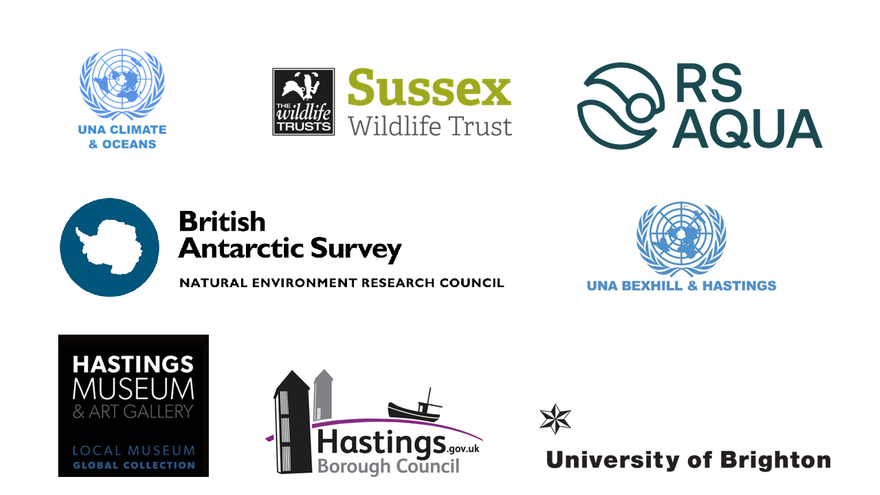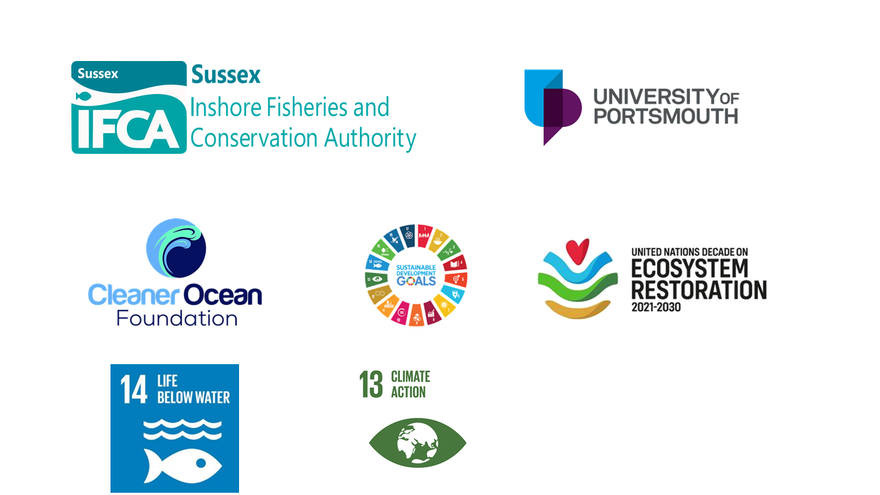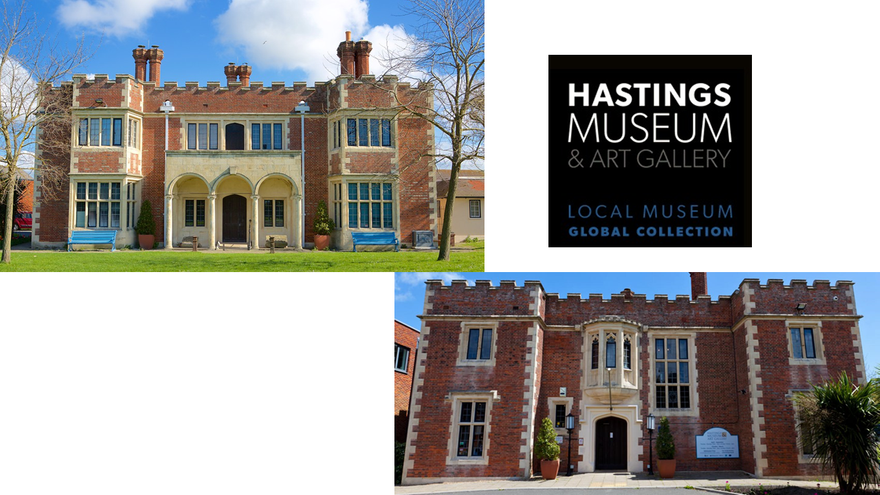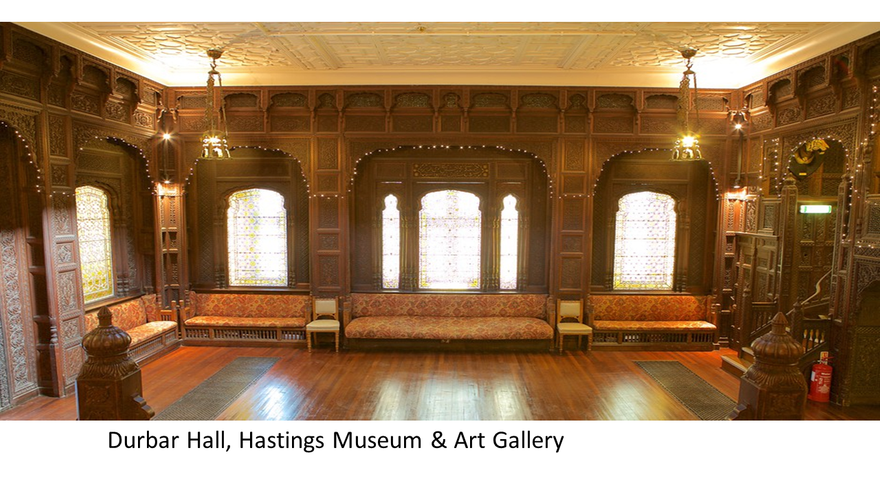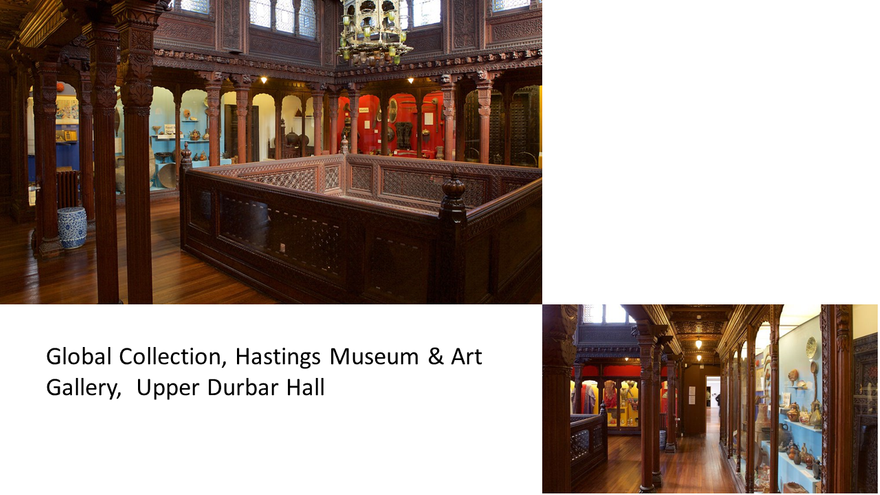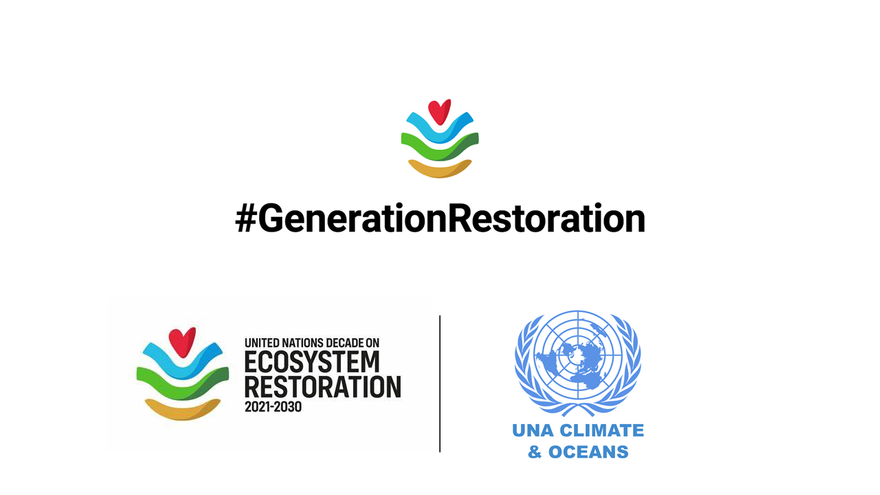The Sussex Blue Charter
A joint initiative between the United Nations Association Climate & Oceans and Sussex Wildlife Trust.
Introduction
The ocean is vital to all life on our planet. It produces at least half of Earth’s oxygen, absorbs about a quarter of the world’s carbon dioxide emissions and most of the excess heat. Billions of people depend on it for food and their livelihoods, and it provides many cultural benefits.
It is estimated that at least 40% of the world’s population lives with 100 km of the coast. The ocean is facing a myriad of threats caused by anthropogenic activities which are severely affecting the health of the ocean, both globally and locally. Climate change is increasing ocean temperatures which is causing ecosystem declines, biodiversity loss, species population shifts and sea level rise. Increases in carbon dioxide emissions are causing ocean acidification. Many global fish stocks are being mis-managed and overfished. There are also issues caused by pollution, including plastic pollution, invasive species and many more.
Sussex is a coastal county, and our coastal and marine habitats are unfortunately facing similar negative impacts as the global ocean. Roughly 1.6 million people live Sussex, and most live on the coastal strip south of the Downs, in Brighton, Worthing, Eastbourne, Hastings and Bexhill.
Sussex has nationally important intertidal and nearshore habitats and species. Sussex has nine designated Marine Conservation Zones (MCZs) and special habitats include blue mussel beds and underwater chalk reefs which are the best example of this internationally rare habitat in Europe. Long-snouted and short-snouted seahorses rely on this habitat. Extensive beds of blue mussels, ross worm reefs and native oyster (once prolific, now in decline). These reefs provide valuable feeding grounds for wading birds and support seaweeds, barnacles, anemones and crabs. Black seabream fish have the conservation objective of ‘recover’ and are also at risk. In spring they visit Sussex waters to breed and Kingmere MCZ is one of their most important nesting grounds in the UK. Kelp forests were once found extensively nearshore in West Sussex This formerly thriving Sussex seascape that is at the heart of a historical and cultural fishing community is now seriously degraded by decades of bottom-towed trawling and other anthropogenic factors.
UN Decade of Ocean Science for Sustainable Development
On 5 December 2017, the United Nations General Assembly passed resolution proclaiming a Decade of Ocean Science for Sustainable Development (the Ocean Decade), to be held from 2021 to 2030. The Ocean Decade was born out of the recognition that much more needs to be done to reverse the cycle of decline in ocean health and create improved conditions for the sustainable development of the ocean, seas and coasts.
This Decade will provide a common framework to ensure that ocean science can fully support countries’ actions to sustainably manage the Ocean. It offers the ocean community a unique opportunity to join efforts, mobilise resources, create partnerships and engage governments in moving towards ‘the science we need for the ocean we want’.
Through stronger international cooperation, the Decade will bolster scientific research and innovative technologies to ensure science responds to the needs of society. The priorities of the Ocean Decade are to work towards:
• A clean ocean where sources of pollution are identified and removed
• A healthy and resilient ocean where marine ecosystems are mapped and protected
• A predictable ocean where society has the capacity to understand current and future ocean conditions
• A safe ocean where people are protected from ocean hazards
• A sustainably harvested ocean ensuring the provision of food supply
• A transparent ocean with open access to data, information and technologies
• An inspiring and engaging ocean where society understands and values the ocean
What can you do to help?
When listing all the problems the ocean is facing, particularly in the wake of the latest IPCC report, it can seem overwhelming. The aim of the Sussex Blue Charter is to give individuals, businesses and other organisations tangible, positive actions they can do that will help the health of our local, and ultimately the global, ocean.
The Ocean Symposium 2021
The Ocean Symposium 2021 was an in-person/online fusion event, featuring a cast of world class speakers, underwater films, UN/ UNESCO global marine films, and UNA Youth Ambassador presentations - and a global audience via Zoom!
Ocean Symposium - Sussex, 2 October 2021
with thanks to Sussex Underwater and Steve Allnutt
The Ocean Symposium 2021 - "Think Global, Act Local" was held on Saturday the 2nd of October, live from the stunning Durbar Hall at the Hastings Museum & Art Gallery.
The presentations included local and global science. You were invited to join them in-person or from anywhere in the UK or around the world live through Zoom! Tickets were sold out for attendance at the Durbar Hall. The global audience also had the oppotunity to ask questions live to the speakers during the Q&A sessions.
2021 is an important year for marine conservation with the United Nations launching the Decade of Ocean Science for Sustainable Development (2021 – 2030). This Decade will provide a common framework to ensure that ocean science can fully support countries’ actions to sustainably manage the Oceans and more particularly to achieve the 2030 Agenda for Sustainable Development.
To link with and support the Decade, the United Nations Association Climate & Oceans (UNA), in collaboration with Sussex Wildlife Trust, hosted the Ocean Symposium 2021 and launched the UN Decade of Ocean Science in Sussex and the United Kingdom.
The Ocean Symposium 2021 brought you exciting, world class speakers from Sussex and around the globe. The Symposium was designed to encourage people to ‘Think Global, Act Local’ about our Oceans, with talks on inspiring local projects, and from researchers further afield tackling global issues.
The speakers included:
Dr Simon Morley, Senior Scientist, British Antarctic Survey, Cambridge, Rothera Research Station, Antarctica - "Diving into Antarctic Benthic Ecosystems".
Dr Ian Hendy, Marine Biology Course Leader, University of Portsmouth - "Climate-driven golden tides are reshaping coastal communities in Quintana Roo, Mexico"
Dr Corina Ciocan, Principle Lecturer in Marine Biology, Centre for Aquatic Environments, University of Brighton - "Ocean pollution - New Contaminants, New Challenges"
Tim Dapling - Chief Fisheries & Conservation Officer, Sussex Inshore Fisheries and Conservation Authority - "Taking an Ecosystem Approach to Inshore Fisheries Management; The Sussex Nearshore Trawling Byelaw"
Nikki Hills - Wild Coast Sussex Project Manager, Sussex Wildlife Trust - "Tackling Ghost Fishing Gear"
Phoebe Chadwick, Marine Scientist RS Aqua and Nathan Hunt, Marine Scientist RS Aqua - "Innovative Marine Technologies within Local Projects"
Samuel Hickling - Oceanographer, ARC Marine Ltd - "The Road to Nature Inclusive Design in Marine Manmade Structures"
Steve Allnutt - Diver and Team Member, Sussex Underwater - "Filming Sussex Underwater"
There were also talks from youth voices bringing you their perspectives on marine conservation, and on ocean innovation, highlighting exciting technology which is helping to innovate marine research.
Youth Voices:
Jemma Sargeant, Marine Biologist, UNA Youth Ambassador - "Our Isles and Oceans project"
Michele Ivone -Formica Rodriquez - UNA Youth Ambassador - "Marine Management in Gran Canaria, Spain"
Lara Hauge - UNA Youth Ambassador - "SEA - Seaford Environmental Alliance"
At this event the UNA Climate & Oceans and Sussex Wildlife Trust launched their joint 'Sussex Blue Charter". The expert speakers responded to questions and answer sessions live at this impressive all-day event.
by Nelson Kay, Cleaner Ocean Foundation
The Venue
Hastings Museum & Art Gallery
Most photos by Nelson Kay - Cleaner Ocean Foundation
In collaboration with

